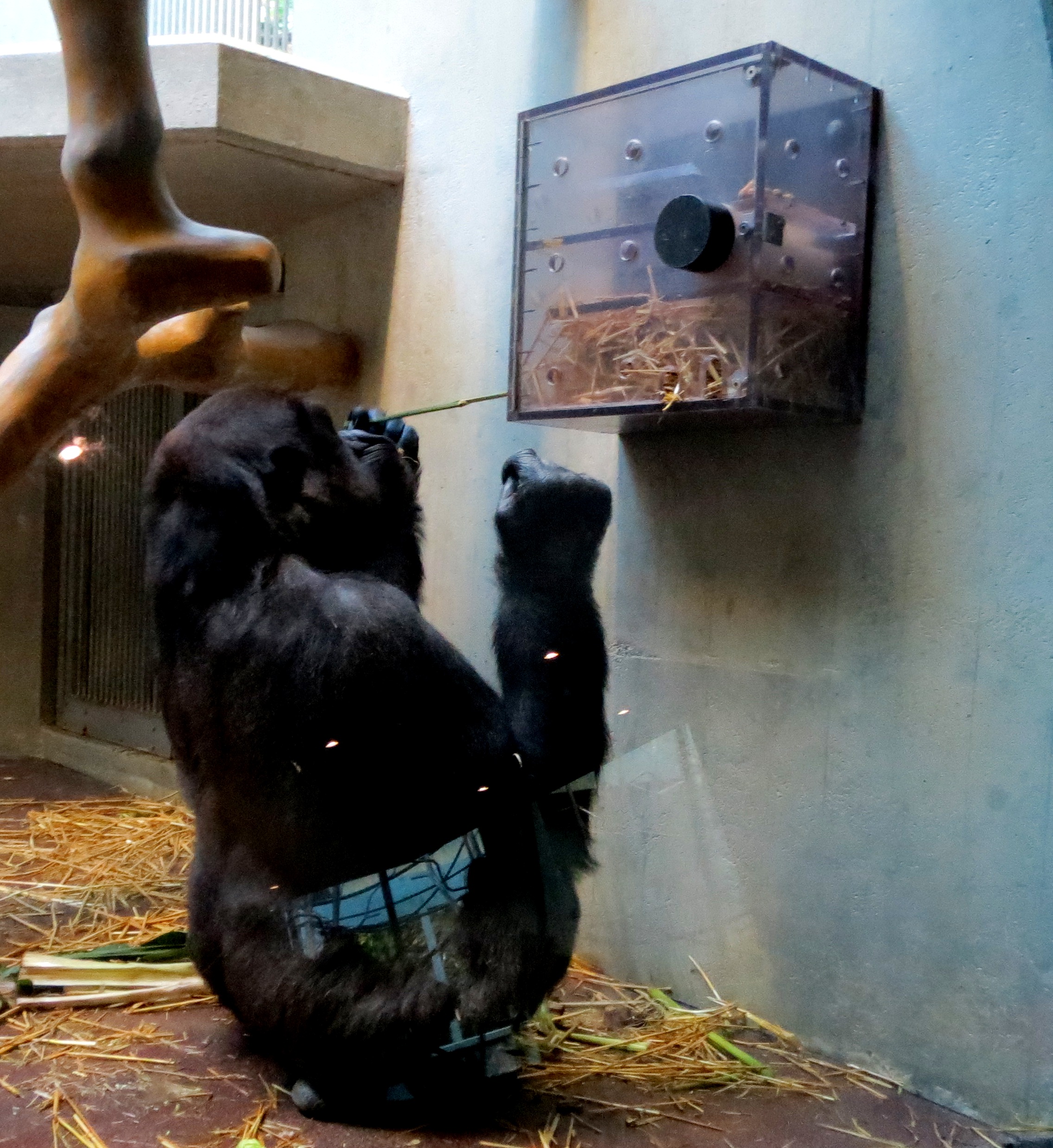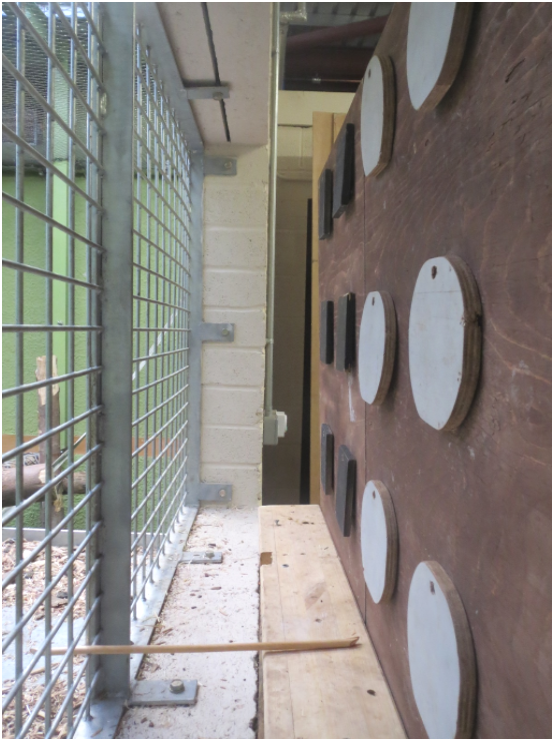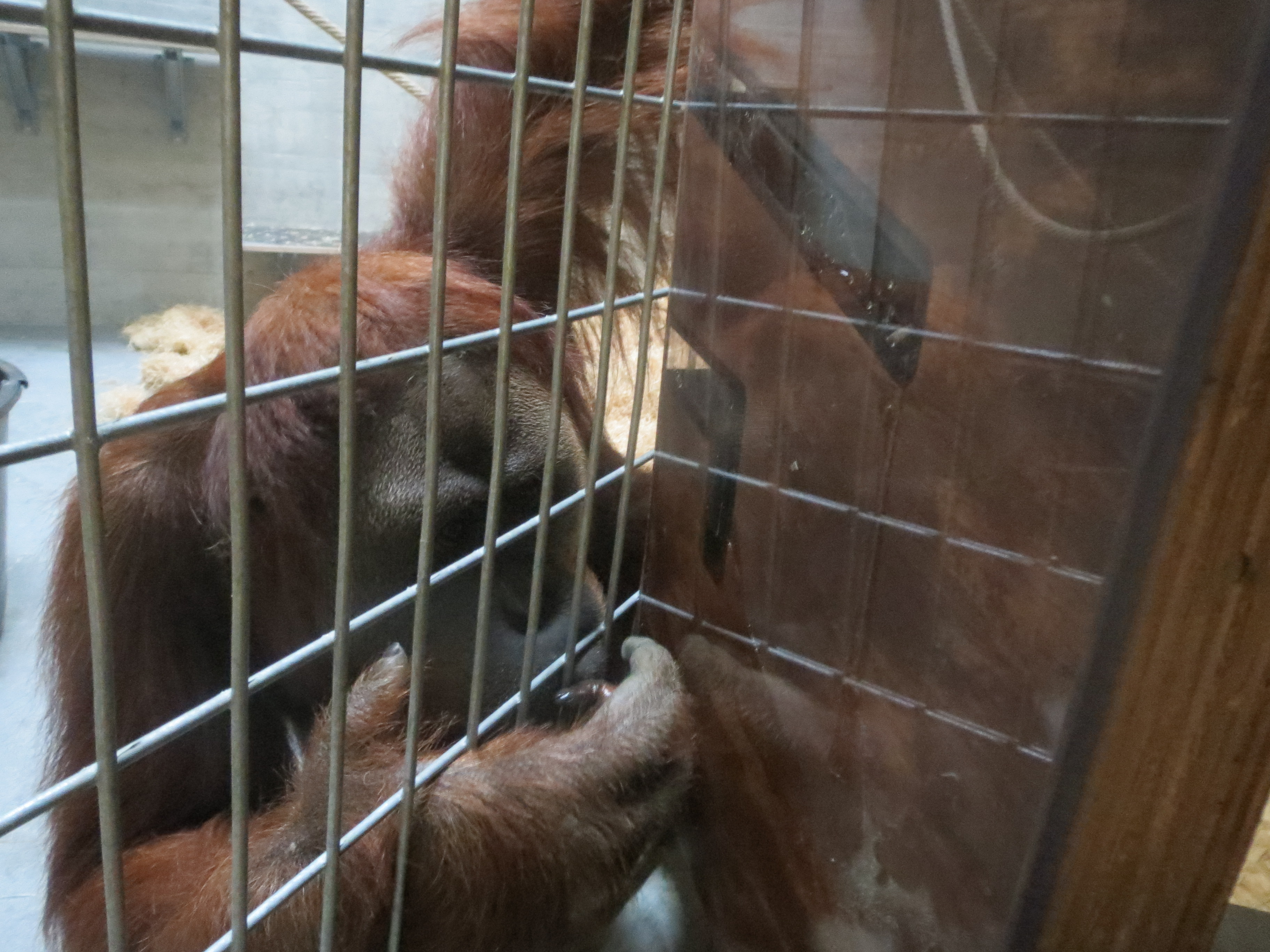About This Project
In humans, cognitive abilities are acquired during development and are influenced by the specific socio-cultural environment children are raised in. To what extent ontogeny and different experiences change cognition in our closest living relatives - the great apes - is still largely unknown. During this project we will examine how various captive upbringing conditions – including contact with humans – affect cognitive skills both within and across the great ape species.
Ask the Scientists
Join The DiscussionWhat is the context of this research?
This project will assess how rearing conditions alter cognitive skills within each great ape species (chimpanzees, orangutans, bonobos and gorillas). Because our knowledge on cognitive abilities of apes mostly are conducted in captive conditions, we need to understand what particular influences captivity and human exposure have on cognitive development. At first, we will perform a pilot study that compare the physical and social cognitive skills between individuals who are raised by their own mother to those who have been hand nursed by humans and thus experienced intense human socio-emotional contact. We will collect data on curiosity, reactions to humans and problem-solving skills of all ape species in various zoological gardens in Europe.
What is the significance of this project?
Early experiences are vital for shaping cognitive abilities in humans. Developmental effects on cognition in apes on the other hand remain largely unstudied. Therefore we will examine intraspecific variation in relation to rearing conditions and the effect of early experiences. Thus, the proposed project fills a need for comprehensive studies of individual variation in cognitive traits that can be related to rearing histories and the underlying psychological motivational variables, such as attention structure, curiosity and exploration. In particular this research project promises insights on whether developmental conditions and social experiences, similarly like in humans, also construct cognition in our closest living relatives - the great apes.
What are the goals of the project?
Our goal to evaluate the relationship between specific rearing- and background histories and performance in cognitive tasks will be achieved through a set of tests measuring: innovativeness, tool-use, inhibition and memory. Zoos and sanctuaries provide us with excellent opportunity to test our aim: apes raised in captivity differ largely in their experiences. Some apes have been hand nursed by humans, others are wild born but brought to captivity as infants and many are raised by their own mother. Additionally we will test the motivational states of each ape, their social orientation (both conspecifics and humans) and their curiosity. Ultimately we will then be able to link rearing and early experiences to their motivational characteristics which may lead to higher cognitive skills.
Budget
With the requested funding we will be able to perform a pilot study and conduct a set of cognitive tasks (5 problem-solving tasks, 2 social cognitive tasks) of all great ape species at 2-3 different zoological gardens. It will help us fund the production of the necessary puzzle boxes that we will need in order to test the cognitive skills of the apes. Additionally it will allow us to perform a set of tests measuring the different ape’s responses to novel food and objects, exploration tendencies, curiosity and their reactions to humans. In order to answer the research questions on how different early experiences, variation in human exposure and different captive regimes influence the cognitive skills of apes, we need a large and variable sample. This can be established if we manage to find enough sponsors to cover the costs of collecting the data at as many different zoos housing apes who are both hand reared by humans and those raised by their own mothers in peer groups.
Endorsed by
Meet the Team
Affiliates
Sofia Forss
I have always been extremely interested in understanding the similarities and differences between developmental phases of human children and the great apes. I firmly believe that we can learn a lot about ourselves and our evolutionary roots by comparing similarities with our closest living relatives. I am especially fascinated by their cognitive abilities and cultures and how these interact with each other.
https://www.researchgate.net/p...
https://www.linkedin.com/in/so...
Claudio Tennie
Since the end of 2012 I am based at the University of Birmingham (UK) - as a "Birmingham Fellow" (i.e., a research-focused lecturer).
My main research explores what makes human cognition unique - as well as why (and also, when this happened during our evolution and also during our development). In particular I study the factors and the prehistorical beginnings that enabled human forms of culture: i.e. cumulative culture – culture that evolves over time by way of treating earlier cultural items as stepping stones for later ones.
I do this by studying non-human animals (mainly great apes), human adults and human children (also cross-culturally - in collaboration with Mark Nielsen) with a diverse set of methodological approaches, combining insights from developmental psychology, evolutionary biology, evolutionary archaeology, behavioural ecology and biological anthropology.
Through broadening the scope of species examined, extending my findings into our evolutionary past and by developing research paradigms that can be applied non-linguistically, I aim to probe the origins of cumulative culture in human ontogeny and phylogeny, as well as the distribution of cumulative culture across the animal kingdom.
Lab Notes
Nothing posted yet.
Additional Information

 This picture features a board that is produced in order to test the apes' memory capacity. behind the black and white lids we hide a food reward and the apes will learn the association between color and food. We then perform the test over a few days in order to see how well they remember, and once they are good at it we will change the food reward to go behind the opposite color. In this way we can see how flexible they are in their learning strategies.
This picture features a board that is produced in order to test the apes' memory capacity. behind the black and white lids we hide a food reward and the apes will learn the association between color and food. We then perform the test over a few days in order to see how well they remember, and once they are good at it we will change the food reward to go behind the opposite color. In this way we can see how flexible they are in their learning strategies.

Project Backers
- 18Backers
- 27%Funded
- $1,210Total Donations
- $67.22Average Donation

